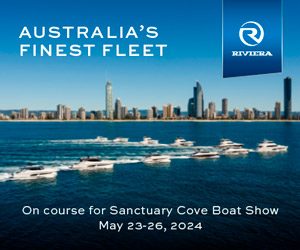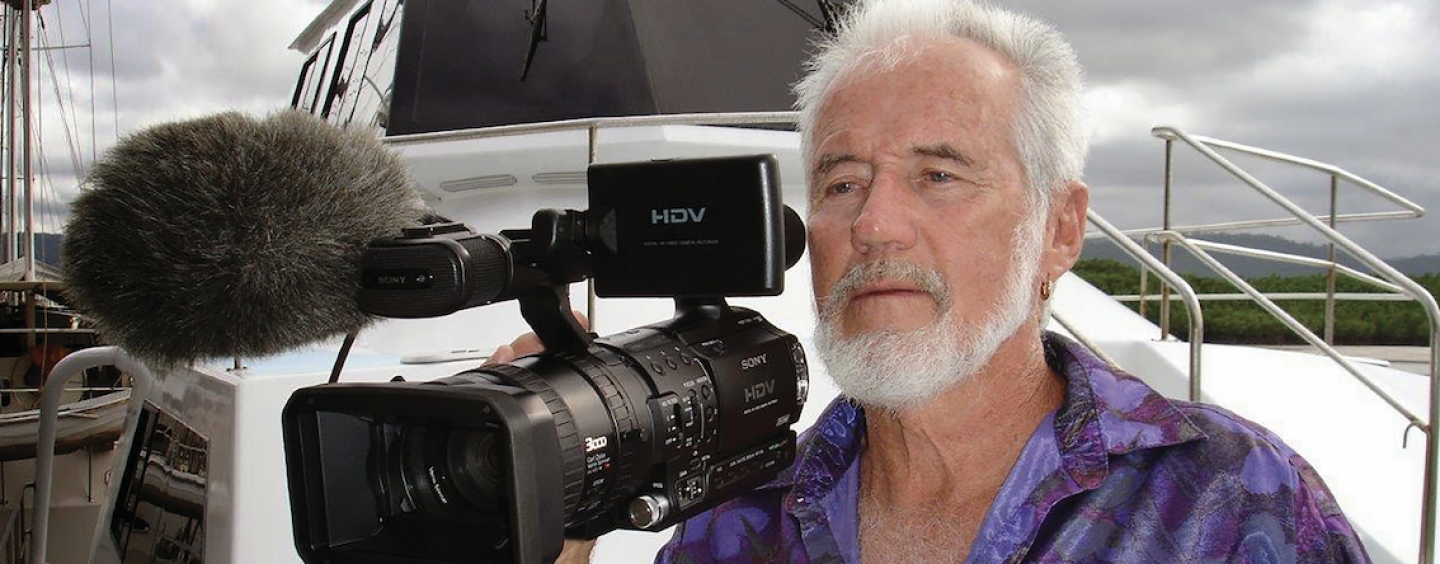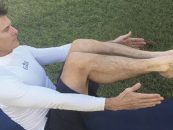“Ben Cropp. 83. Still diving. Still spear fishing.”
Ben’s soundcheck for my interview with him serves as both an impressive resume, and something of a mission statement for many people. Being able to pursue life’s passions so completely well into the eighties is, unfortunately, a rare thing.
Hearing of Ben’s exploits across a very full life, you would be forgiven for thinking that the sea is as important to him as the air he breathes. Possibly, it is even more so.
Ben knows he is fortunate to not just have lived an enviable amount of his life in the ocean, but to have made a great living out of it. An accomplished spear fisher, diver, documentary maker, and part-time wreck hunter, Ben has spent time in the national – and, at points, international – spotlight for all four pursuits.
How it all started
Among his various pursuits, spearfishing was the initial love. That all started in 1950, after he saw Indigenous Australians using their long spears to catch fish at Ballina, and fascinated by the technique.
Within three years of his involvement in spear fishing, he had become the Australian champion. He won the national title a total of six times, and represented Australia on the world stage, before he retired from the sport in 1964 and started to make documentaries.
People have always had a fascination with sharks. It is no surprise that much of the former Gold Coaster’s early work centred on them. “Even though it was hunting sharks – which is considered a little bit deplorable these days – it was a big deal then. The attitude towards sharks was the only good shark was a dead one. There was no conservation thought about sharks,” he recalls.
While shooting one of these documentaries for hungry audiences worldwide, he experienced his most frightening moment underwater – surrounded by six bronze whalers. “In those days, you speared a fish and that would bring the sharks in. I speared the fish and two sharks came in. I was filming them, and they went away. Then six more came in and there wasn’t any fish left. And they charged at me instead. I went backwards, still filming; I was actually kicking them to get them away. We’ve got it all on film. It was only 15 seconds on film, but it seemed like ages,” Ben says.
With his exploits with sharks, Ben has learned about their behaviour. “Sharks are easily scared. If you see one, you can scare it away. I’m worried about the ones I don’t see… If you make any sudden movement toward a shark, it will turn and run. But the best thing is to do nothing – just slowly back away,” he advises. “However, if it’s aggressive, be aggressive back.”
Diving for Documentaries
A veteran with more than 10,000 dives, Ben has encountered countless dangerous scenarios beneath the surface. He experienced a malfunction on his first scuba dive, accidently turning off the tank rather than turning it on and having to perform a dangerous free ascent as a result. He has also experienced several blown hoses.
They say the risk is worth the reward though, and Ben’s documentaries were regularly shown on Channels 7 and 9, as well as networks in Germany, Japan and the US. He was actually the first Australian to sell a documentary to a US network, the NBC.
“I would usually make two or three documentaries in a year, but I wouldn’t work full-time. I like to enjoy my work, so I did it when I felt like it and stretched it out, making it more like an expedition. I found a lot of shipwrecks by using the film budget. The only time I kept a schedule was the editing.”
Changing focus
In time, making documentaries began to change Ben’s perspective. Once, he had been an avid hunter – always keen to find the biggest fish he could and sell it for profit, which he used for documentary making. However, that all changed – ironically, thanks to an experience with a shark.
“The dive that changed me was when I met this huge whale shark off Montague Island. I sat on its back and the diver with me sat on its back too. It made world headlines, front-page headlines around the world! I was a shark hunter until then,” he recalls. “I stopped shark hunting. Shooting sharks with a camera was much better. It was my biggest scoop. I still went spear fishing, but I no longer went for the biggest fish. I no longer went after sharks with a spear gun.”
After that experience and the worldwide coverage it gained, his documentaries moved from focusing on the hunt to inspiring people to explore. As Ben has spent more time experiencing nature and bringing it to others, he has become more passionate about its preservation.
He has strong beliefs about pollution’s effect on natural wonders like the Great Barrier Reef and our beaches, from the popular ones of the Gold Coast to the picturesque ones of Far North Queensland, where he now lives.
“Rubbish is bad news,” he says. “The pollution on our beaches is terrible, especially when I go to our beaches up north – pristine beaches and they’re just chock-a-block with rubbish. They’ve banned plastic bags, but more important than even that, they should ban plastic water bottles. The Great Barrier Reef, for example, bounces back after cyclones. However, the inner reefs are being harmed by pollution. And that is what they should be spending the money on solving. It comes in many forms: sediment washed out, dredging which puts toxic soils in the water, then you’ve got plastic pollution, which is going to be very serious in the long-term.”
Wrecks and Films
Ben’s documentaries covered a variety of topics, from whale shakes and sea snakes, to crabs and box jellyfish, and cover a multitude of locations, from the Cape York Peninsula and the Kimberley Coast to Sydney Harbour and Arnhem Land. Several are family ventures involving his two sons, Dean and Adam, who share his passions.
Some of Ben’s most memorable documentaries cover his favourite hobby: wreck hunting. Across the course of his life, he estimates he has unearthed about 100 shipwrecks, including some that have garnered widespread interest. His wrecks would often be part of his documentaries, or became the subject of one, like The Search for the Mystery Bomber, which featured a B17 Flying Fortress. Ben made one of the most significant shipwreck finds in Australia’s history, the HMS Pandora, on the Great Barrier Reef in 1977.
Favourite Spots on the Gold Coast
These days, Ben is still going strong, pursuing his passions in unhurried North Queensland. However, he still fondly remembers the Gold Coast, which he called home back when Surfers Paradise was just a strip of sand with very little development.
He enjoyed diving off Point Lookout, Flat Rock and Cape Moreton off the southern Queensland/northern New South Wales coast, although his favourite spot was Cook Island off Fingal Beach. He recommends all these spots for people with a passion for diving.
Slowing down
While Ben has slowed down diving as the years go by, he loves to continue on his other three hobbies: snorkelling, spear fishing and, above all, wreck hunting. “I love exploring and discovering. Both my sons have that same adventurous spirit – they want to go out and discover. There isn’t a lot left in this world to discover, except for shipwrecks! You don’t make any money wreck hunting. It costs you money,” he laughs. “Now that I don’t do films, I have to use my own money. But I still love discovering shipwrecks.”
By Chris Logan



























